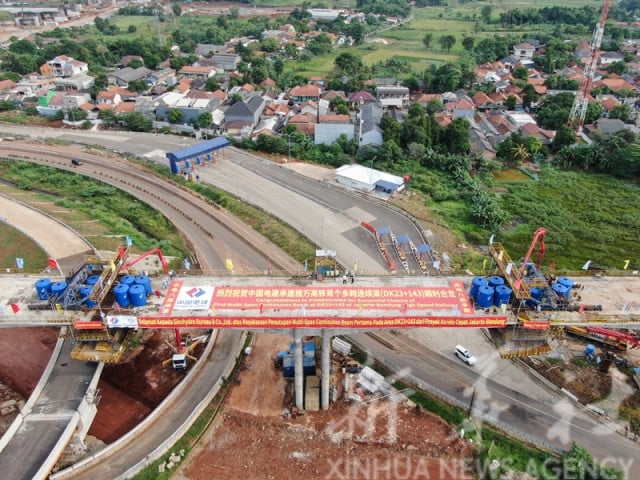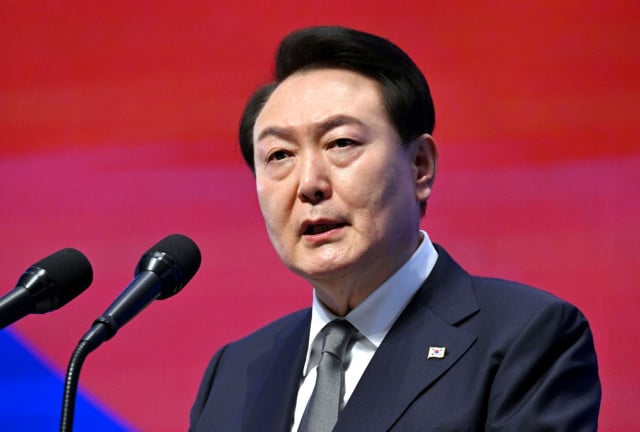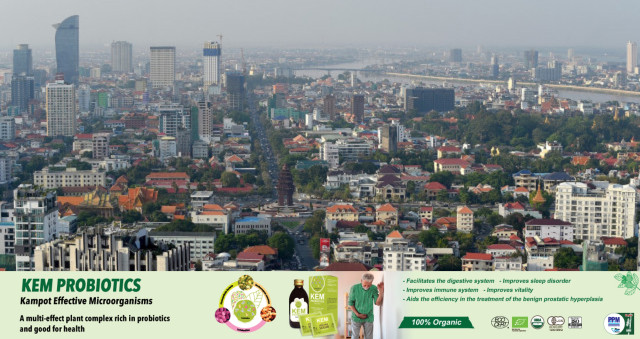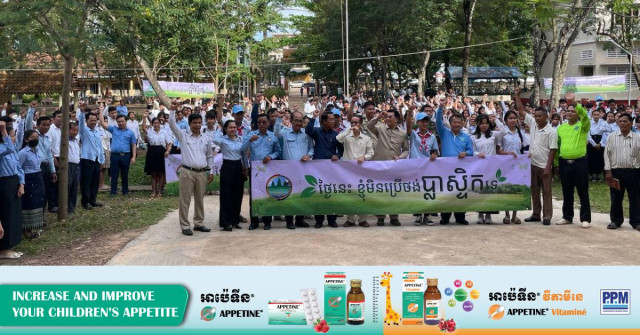Multiple Arrests as NagaWorld Strike Enters Third Week
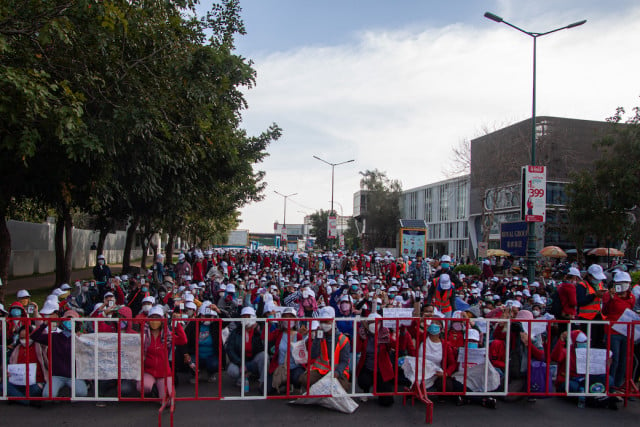
- By Gerald Flynn
- and Phoung Vantha
- January 4, 2022 8:33 AM
Police were unable to confirm how many striking NagaWorld unionists were detained on Jan. 3, but those arrested on Dec. 31 now face charges of incitement while the strike continues undeterred
PHNOM PENH--Between 15 and 17 people were arrested on Jan. 3 when NagaWorld strikers attempted to reach the casino, but were instead blocked by police who held some 400 union members cordoned off outside the Australian Embassy on National Assembly Street in Phnom Penh.
Phnom Penh Municipal Police spokesperson San Sokseyha could not be reached to confirm the exact number of arrests and the reason, despite multiple calls.
Police on the ground refused to discuss the arrests, directing comments to Keut Chhay, deputy governor of Phnom Penh, who initially refused to allow journalists to the scene where roughly 400 members of the Labor Rights Supported Union of Khmer Employees of NagaWorld (LRSU) faced off against nearly 100 police and two firetrucks.
When approached, Chhay said he was unauthorized to speak to the press and declined to provide details of the arrests or why two firetrucks had been deployed. Chhay instructed reporters to contact Met Measpheakdey, spokesperson for Phnom Penh City Hall, who could not be reached.
However, a video posted online by labor rights group CENTRAL shows police dragging women from the street and forcing them into a police truck as they walked towards a police barricade. Witnesses said that one of the women arrested was pregnant.
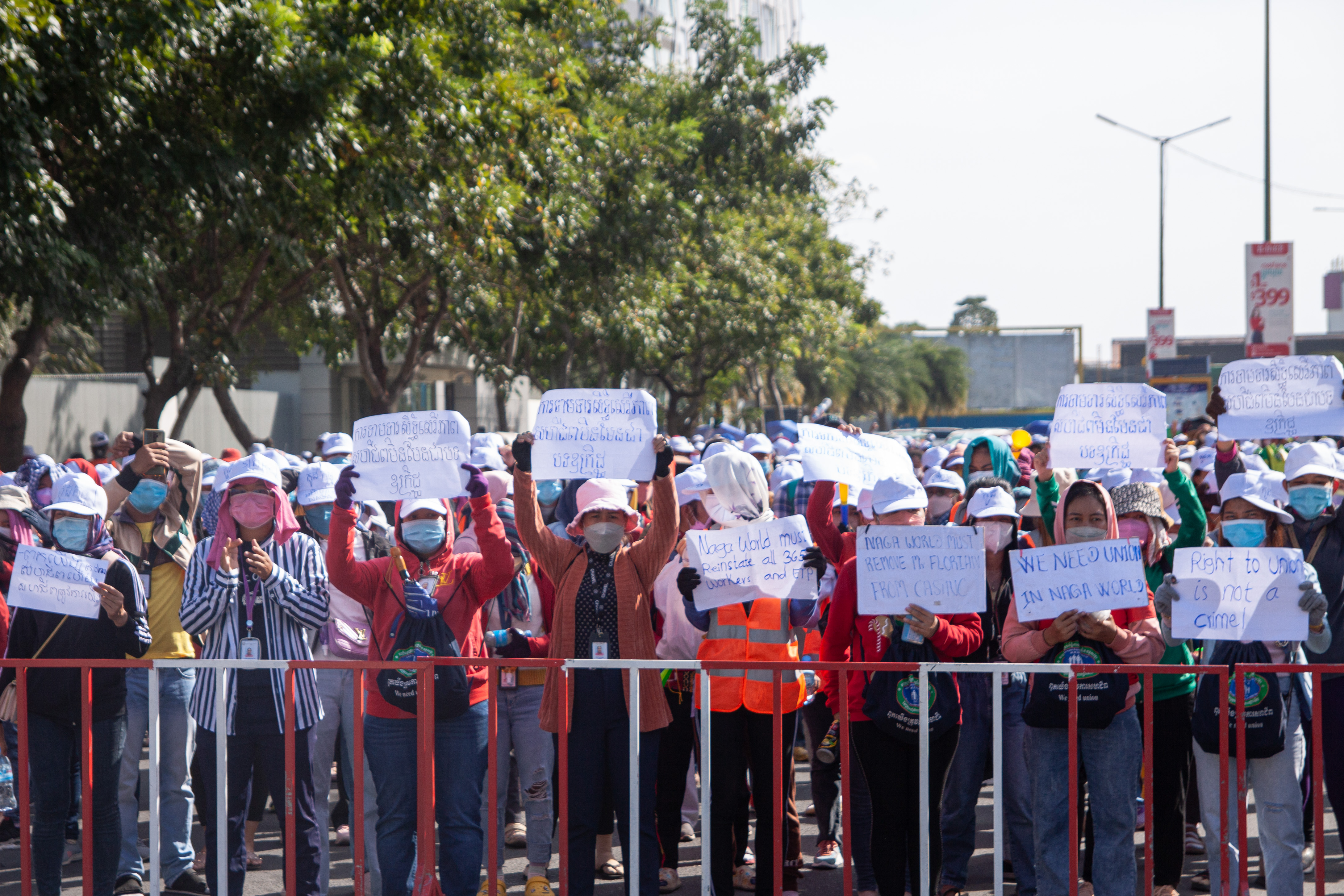
The arrests were made between 2 p.m. and 2.30 p.m., according to eye witnesses, with many of the NagaWorld union members shaken by the police response to a peaceful strike.
“I’m worried that the police will make more arrests,” said Somchan Leakhena, who has worked at NagaWorld for nine years and is still employed by the Hong Kong-listed gambling giant.
“They’re not here to protect us, even though we are peaceful, they have been threatening us,” she said, adding that she joined the strike to find a solution for the union, many members of which were fired in April 2021. NagaWorld maintains that the cuts were made in response to losses due to the COVID-19 pandemic, but LRSU has accused the company of union-busting, noting that many of those who lost jobs were union leaders and activists.
“I want people to feel the injustice we face,” Leakhena said.
Wearing their casino-floor uniforms and blazers, other LRSU strikers remained defiant in the face of more arrests.
“The solution we want is for the 365 people to get their jobs back and the compensation,” said Roth Raksmey, who lost her job at NagaWorld last year after 26 years of employment.
“We need the union at that company because the union makes everything at work better: They help us when the bosses won’t or when the customer loses and gets angry with us for them losing,” Raksmey added. “They’re the go-between for workers.”
The arrests on Jan. 3 came after a string of arrests made late on New Year’s Eve when police raided LRSU’s office, arresting eight unionists including LRSU General Secretary Chhim Sokhon, then proceeded to arrest a tuk-tuk driver and one more striker outside NagaWorld.
Of the 10 arrested on Dec. 31, four—Eng Sreybo, Sun Sreymom, To Pisey and Rin Phalla—were released on Jan. 3, while the remaining six were taken from Phnom Penh Police Station to Phnom Penh Municipal Court to be questioned on Jan. 2 and on Jan. 3.
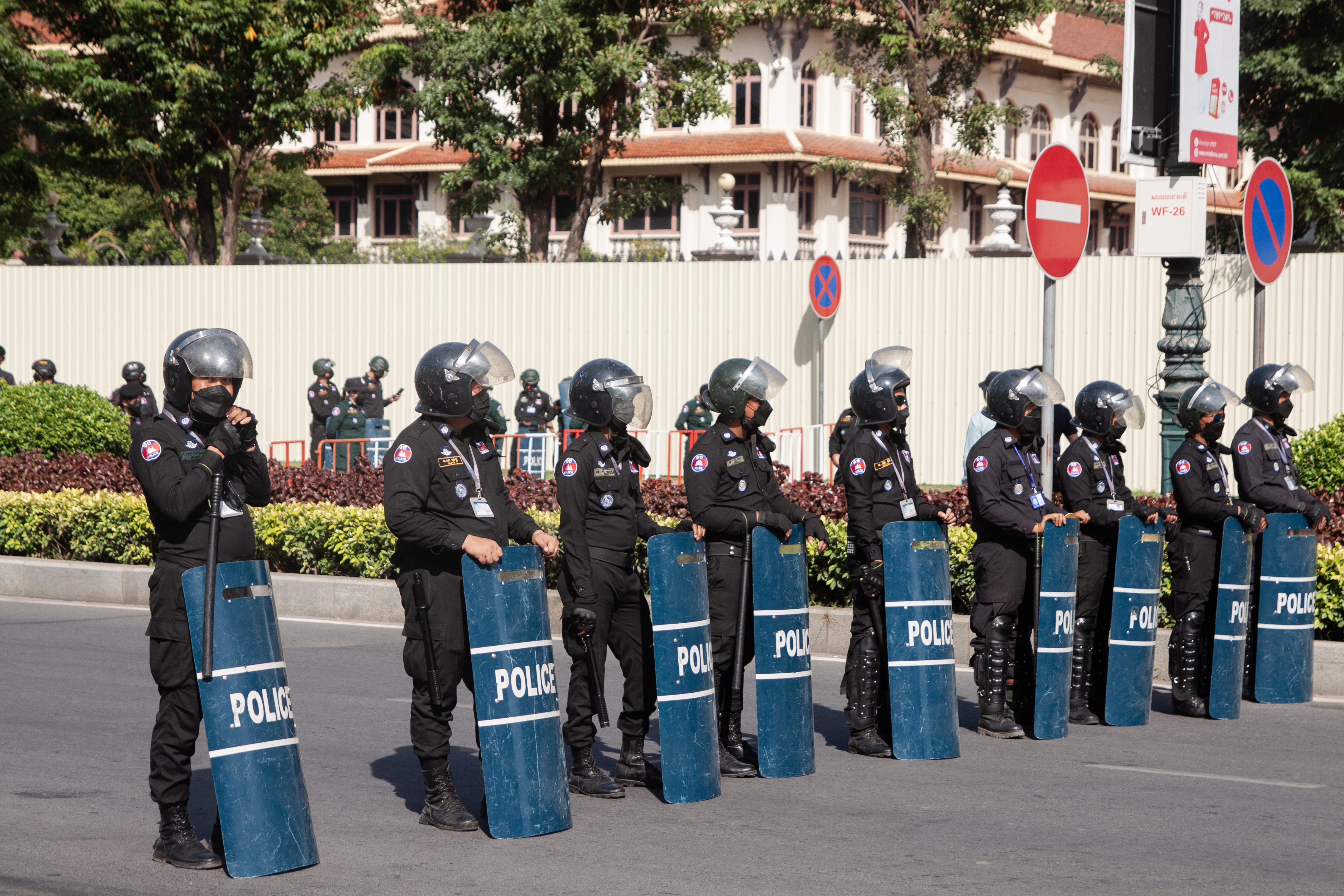
Touch Sereymeas, Hai Sopheap, Ry Sovandy, Kleang Sobin, Chhim Sokhon and Sun Sreypich have since been sent to Correctional Center 2 while the Phnom Penh Municipal Court issued a statement listing nine suspects accused of “incitement to cause a disturbance to social security.”
The court’s statement listed nine names, including the six now in pre-trial detention at Correctional Center 2, but Chhim Sithar—president of LRSU—was also listed as a suspect in the investigation, along with Sok Narith and Sok Kongkea.
“We are disappointed with the authorities’ response to the rights of speech of workers,” said Sithar regarding the court’s statement. “This act only adds additional problems but not the solution. Doing this only fuels the anger of the workers.”
Throughout the strike, Sithar and LRSU members have been vocally critical of both the Ministry of Labor for failing to find a solution to the dispute and of the police for heavy-handed tactics.
“The strike will continue,” Sithar added.
Following the arrests on Jan. 3, which police have so far been unable to confirm, the standoff between the union and the police remained peaceful, with strikers singing songs, banging pots and pans, while police sat down, sought shade from the afternoon sun or dozed in police trucks.
Strikers abandoned their posts and called it a day at 6 p.m., telling reporters they would be back on Jan. 4 and days to come until a solution is found.
Khun Tharo, program manager at rights group CENTRAL, said that the continued use of detention against workers seeking a solution to a labor dispute only exacerbates the situation.
“The authorities’ actions create injustice in society and turmoil among the workers, in which they’re only exercising their right to strike,” he said, adding that the right to strike is enshrined in both the Cambodian Constitution and the Labor Law.
Tharo said that CENTRAL is working with district authorities to find those arrested on Jan. 3 to ensure that their rights have not been violated further.
“The right to strike is not a criminal offense,” he continued. “The authorities should seek a solution rather than threatening and arresting people who join the strike. Arresting cannot end the strike. There will be more protests in the future, so the authorities should offer a suitable solution rather than causing turmoil to workers who want justice.”







